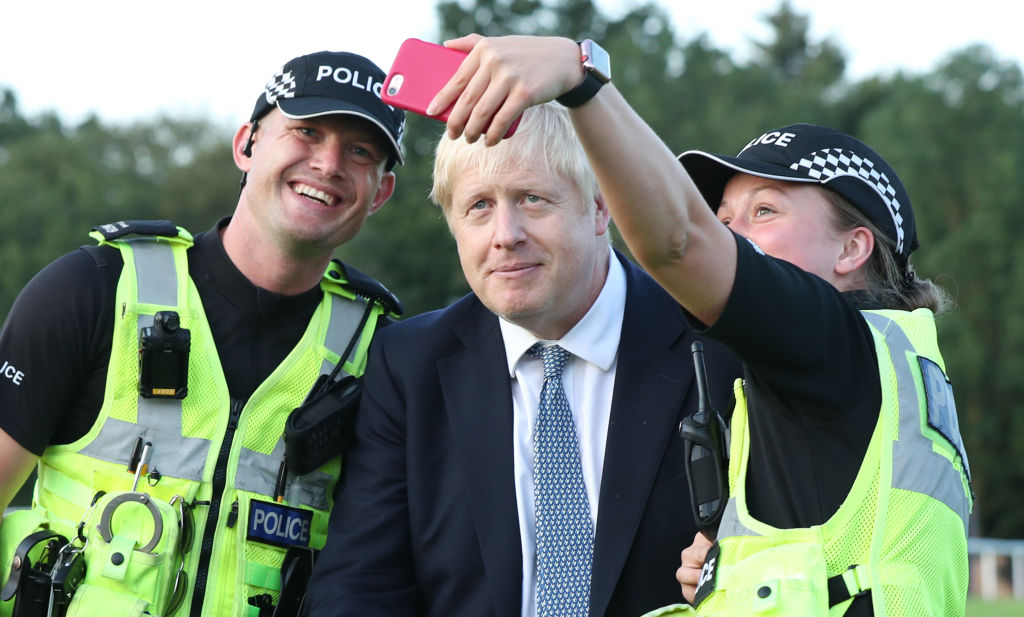What is Boris Johnson’s strategy for engaging with the media? Over the weekend reports emerged that the Johnson government’s media strategy would omit Radio 4’s flagship current affairs programme. No. 10 director of communications Lee Cain is said to have told aides that the Today programme is a ‘total waste of time’. He’s not alone. Johnson’s most senior adviser Dominic Cummings also appears to feel little in the way of warmth towards the show – reportedly telling colleagues that he didn’t listen to it once during the EU referendum campaign when he was campaign director for Vote Leave.
So is the government at war with the BBC already? It’s a little more complicated than that. It’s certainly true that the new regime takes a different stance towards the corporation than its predecessor. When Theresa May was PM, her director of communications Robbie Gibb found himself accused of BBC bias – reportedly for giving the lion’s share of interviews with the then-prime minister to the BBC. As Sky News anchor Adam Boulton put it: ‘May’s largely silent spin doctor, ex BBC suit, thinks only his old employer matters’.
Such complaints are unlikely to be repeated these days. Tellingly, Johnson didn’t go on the Today programme or the Andrew Marr show once during the leadership contest. Instead, his team opted for Radio 4’s the World at One and Sky News’s Ridge on Sunday. Meanwhile, visitors to 10 Downing Street report that these days you are more likely to see Sky News than the BBC on TV screens.
However, rather than an anti-BBC stance, I understand the change in direction is part of a wider shake-up. As I say in the i paper, there is a general shift away from morning news to the evening bulletins. At the Thursday media meeting, government aides were told that their focus ought to be on the evening bulletins – the BBC news at 6pm, ITV news at 6.30pm and BBC news at 10pm are seen as crucial to appealing to the public and reaching out to new voters. A special premium is placed on getting rolling footage of Boris Johnson out and about meeting people across Britain onto the news. Ministers with policy announcements in the grid are still permitted to do a morning round (which could include Today).
There is also a renewed push on regional news. Ministers are to be encouraged to do more regional media and to find ways to make policy announcements specific to local areas. Another way of reaching out is through the use of social media – as an additional tool – with People’s Prime Minister’s Questions. However, the recent reshuffle of special advisers – with many from the Theresa May regime being shown the door – means that many of the government aides enlisted with the task of pursuing this strategy are rather green.
The reason for the change in tack relates to the audience Team Johnson are focussed on appealing to. Rather than wavering anti-no deal MPs or the Westminster commentariat, it’s the general public they have in their sights. In an election, the Conservatives are looking to win marginal seats in areas that voted heavily to Leave. ‘The focus is the country rather than the Westminster bubble,’ says one party insider. There’s a view that the shows the Westminster commentariat focus on are not the ones that decide elections.
Cummings has long been critical of how MPs may do certain shows for self-serving reasons. Reflecting on the EU referendum, he was critical of those Eurosceptic MPs who joined the campaign and ‘sort of wanted to win’ but ‘had other priorities’. These priorities included Radio 4: ‘They were very happy to be on the Today Programme. But they didn’t want to win that much.’ Johnson allies also complain that some presenters too harbour a personal prejudice against their man. ‘If they suffer from Boris Johnson Derangement Syndrome, why should he talk to them?’ asks one party loyalist.
While Johnson’s appearance on the Today programme anytime soon is in doubt, the new strategy means that No. 10 are keen to get him out about. It’s just you’re now as likely to hear a minister on a local news station as Radio 4.







Comments